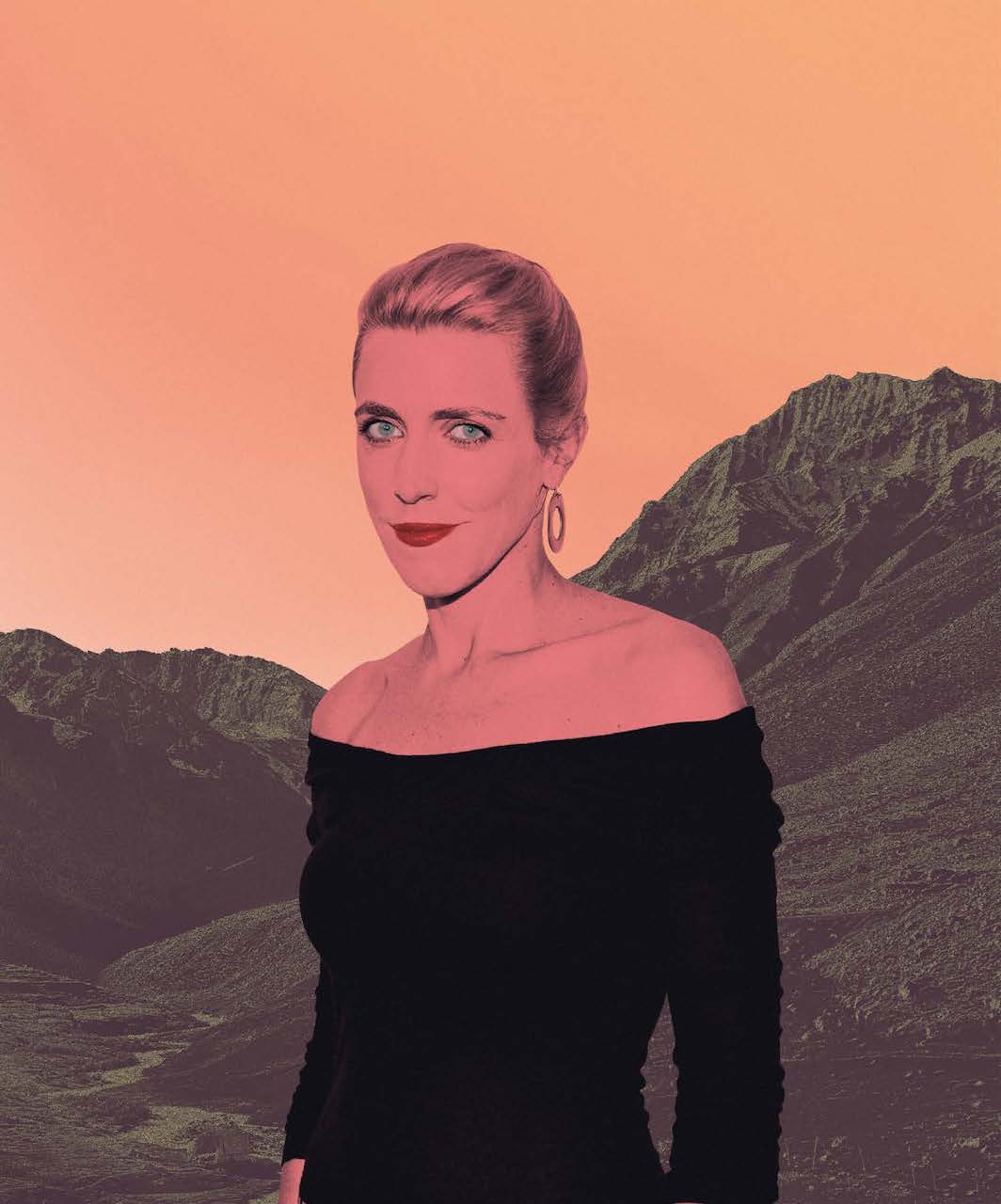Clarissa Ward seems to thrive in high-stakes environments. The 42-year-old Peabody-winning journalist and chief international correspondent at CNN has spent more than 15 years reporting from crisis regions and combat zones—most recently from Ukraine, and her dispatches from the harrowing fall of Kabul in August made global headlines–while also producing gripping profiles of Afghan mothers struggling to educate their girls under Taliban rule. Though Ward lives in London—which allows her to cover Europe and the Middle East at short notice—she frequently visits Palm Beach, where she spent some of her childhood years. Here, she speaks with fourteen-time Emmy Award winning journalist Tim Malloy, who himself has reported extensively from Iraq and Afghanistan.
Tim Malloy: I’d seen a lot of what you’d done, but I had no idea. Daring work. But let’s go back to the closest thing to right now: You, live on CNN, in the middle of Kabul on those final days of evacuation in August 2021. It had to be particularly heartbreaking and terrifying at the same time. Can you paint us a picture of you in those days, and particularly the one where you were on the street where clearly there was a little trouble around you? Or maybe a good deal of trouble.
Clarissa Ward: It was a very chaotic situation. We were some of the very few Western journalists who were reporting from outside the airport. Most reporters had either left or they were inside. So they had a measure of protection from the U.S. forces. We felt confident operating on the streets. I had just spent a few days with the Taliban in Ghazni province, and I’d also done another trip with them about 18 months previously, so I felt like I had a pretty good sense of how they operate and how to deal with them. But, at the same time, it was still incredibly stressful and very difficult. Particularly trying to report outside the airport, because the first thing that happened was we were just swarmed by ordinary, innocent people desperately trying to leave the country, all of them wanting to show us paperwork.
As a human being, you so badly want to stop and have a conversation with each individual and be like, “Okay, well, where are you along on this? And what have you got to do yet?” But you can’t, right? Because there’s gunfire going off nonstop. The Taliban are firing shots to clear the crowds. They’re carrying whips and truncheons. They’re angry. Some of them, I felt, were on some kind of narcotic substance and were out of sorts. At one stage, two of them charged my producer with their rifles held above his head and they were about to crack his skull open. And we were lucky to be working with an Afghan British colleague, Najibullah Quraishi, who was able to somehow get through to them.
TM: There are a lot of multilingual Yale grads, but almost none of them are in combat zones. How did you end up doing this?
CW: I decided to become a journalist on 9/11. I was in my senior year at Yale studying comparative literature. I was very into film though—I thought I wanted to be an actress. And 9/11 happened and it became very clear to me that I wasn’t understanding what was happening in the world. I felt ashamed, honestly. I had always loved storytelling and languages, and I had always felt that I could fit in in any place. And so that became my mission: to go and act as a translator between worlds, basically, because I felt like a big part of what was behind the attacks was this sort of mutual dehumanization, misunderstanding, and miscommunication. Obviously, compounded by a lot of other things as well. I knew I wanted to go to Afghanistan, and then I knew I wanted to go to Iraq.
TM: You have two kids. In your book On All Fronts you write about the pain of separation, and in addition to that you’re going to extremely dangerous places. How do you personally manage that?
CW: I think you have to kind of feel it out. I never wanted to be away for longer than two weeks. Then I was in India covering the COVID pandemic, and obviously there was quarantine afterward. I ended up being away from my kids for three and a half weeks. Then I was in Afghanistan when all hell broke loose and I was away for three weeks. I’m lucky. It takes a village. I have a very supportive husband. I have incredible parents. I have two wonderful nannies who love my boys dearly and who are dearly loved by my boys. You make it work as best you can. And you also move heaven and earth to get home as much as you can. Loving my career the way I do and finding fulfillment in it, I am a more generous mother. I am a more fulfilled mother. I think particularly as mothers, there is this constant guilt, right? And honestly, it doesn’t serve you or your kids. And there will be so many wonderful things that you can offer to your children, even if you weren’t there every single day of their childhood.
Read more of Tim Malloy’s conversation with Clarissa Ward in PALMER Vol. 1, available now.



